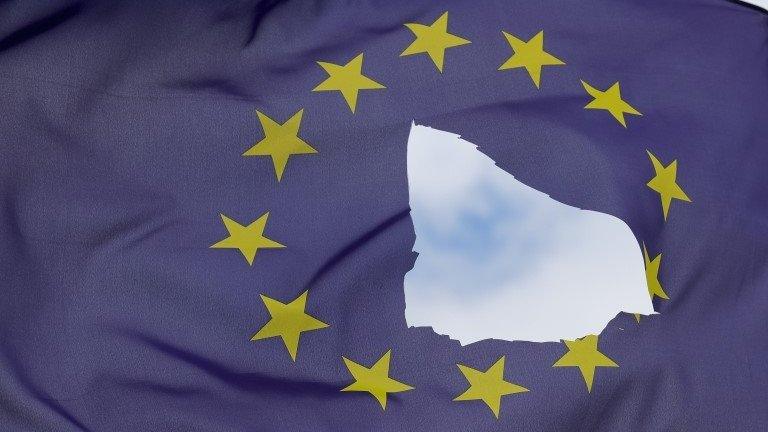EU Brexit talks fail to impress European media
- Published
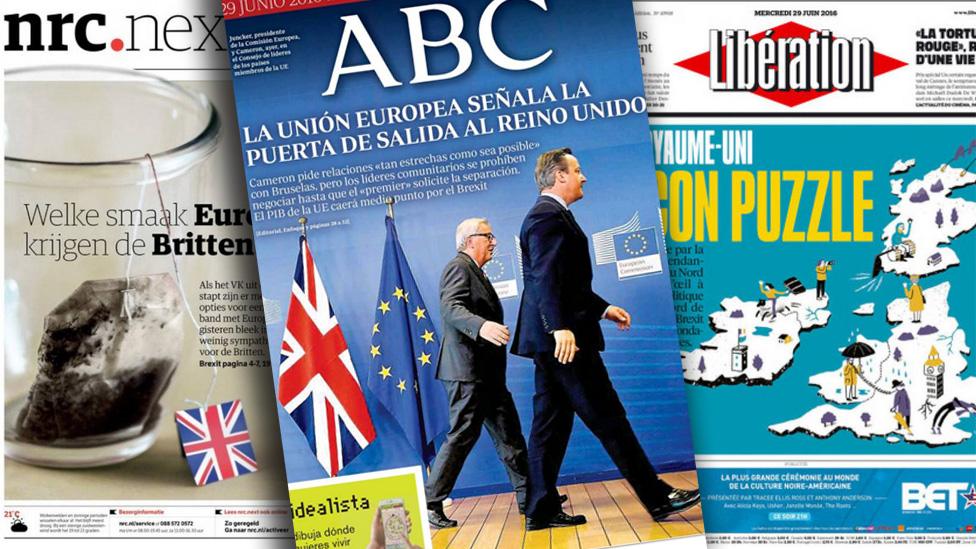
European papers unclear of Britain's future
The European Union summit has failed to impress the media, which sees a divided leadership bewildered by how to deal with Britain's decision to leave.
But some commentators think an accommodation with Britain is more likely than the stern words from Brussels suggest.
'Well-managed divorce'
France's Le Monde, external says the EU's "paralysed" leaders are "clueless about how to deal with London, and divided on the future of the EU".
"Senior sources" in Brussels tell the paper that France is "isolated" in its opposition to any accommodation with Britain, as other states are open to a special deal in their own commercial and political interests.
EU analyst Yves Bertoncini agrees, predicting "Britain had a special status within the EU, it will still have one outside it".
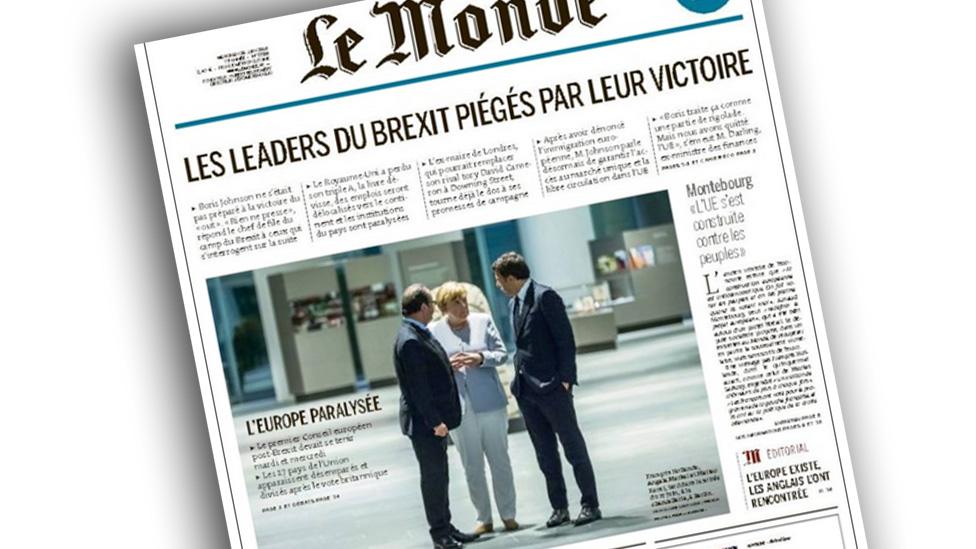
France's Le Monde says Leave campaign "trapped by its victory"
Economist Magdolna Csath also thinks a "well-managed divorce" could strengthen Britain's place in the global economy. She tells Hungary's Magyar Idok, external that it is in the "EU's basic interest to conclude an agreement with Britain to maintain smooth financial relations".
In The Netherlands, Volkskrant, external's Bert Lanting is worried that the "vindictive mood" of yesterday's European Parliament debate bodes ill for amicable talks, and poses a danger to the EU as well.
"A punitive expedition against the British will only deepen the dislike of the EU that many citizens feel," he says.
He says the ultimate goal is "to keep Britain as close as possible to the European Union", but adds that this requires the Leave movement to "grow up and accept reality".
'Make or break'
Not everyone is keen on accommodating Britain. In Germany's Frankfurter Allgemeine Zeitung, external, Berthold Kohler sees a "make or break" moment for Europe.
He accuses its leaders of raising British hopes of a special deal by having "repeatedly backtracked on the rules before", whether over the Stability Pact or bailouts for Greece.
"The aim was to preserve achievements and prevent something worse, but in the long term such trickery endangers what you want to save and damages elites that thin the end justifies the means... If European leaders are finally waking up to this, then the British will through leaving have performed a final service for the EU," he concludes.
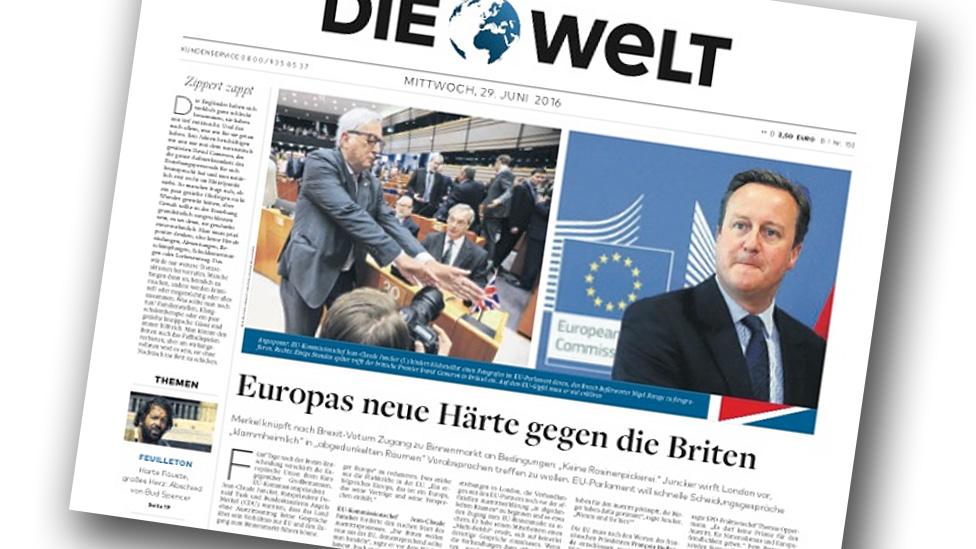
Germany's Die Welt warns of Europe's new hard-line stance against Britain
Germany's Finance Minister Wolfgang Schaeuble may be thinking along the same lines.
Handelsblatt, external reports that he is planning to have the European Central Bank enforce "credible compliance with debt rules, such as the Stability Pact", and threaten eurozone countries with a "rejection law" if their draft budgets do not meet deficit targets.
Spain's La Razon, external also wants the EU to stick to its own rules on a Brexit timetable.
"The rules of the game are clear and being outside Europe means giving up all prerogatives," it says.
"The road map should be properly drafted and all members should stick to it. This is a golden opportunity to display unity and firmness, which in turn will show that the EU has learned from its mistakes".
EU-watcher Gabor Stier agrees. He writes in Hungary's Magyar Nemzet, external that member states must "move quickly... and work together to save the EU" now that the British "ship has sailed".
'Heart of the debate'
Several commentators see migration as the main issue that the EU has to agree on.
Rzeczpospolita, external reports that the Polish government is ready to accept restrictions on the movement of labour for the "sake of EU unity".
The paper says "fear of cheap labour" from Eastern Europe is the main driver of Eurosceptic movements across the continent, and hopes that the Polish proposal will be the start of a "process of reforming the entire Union".
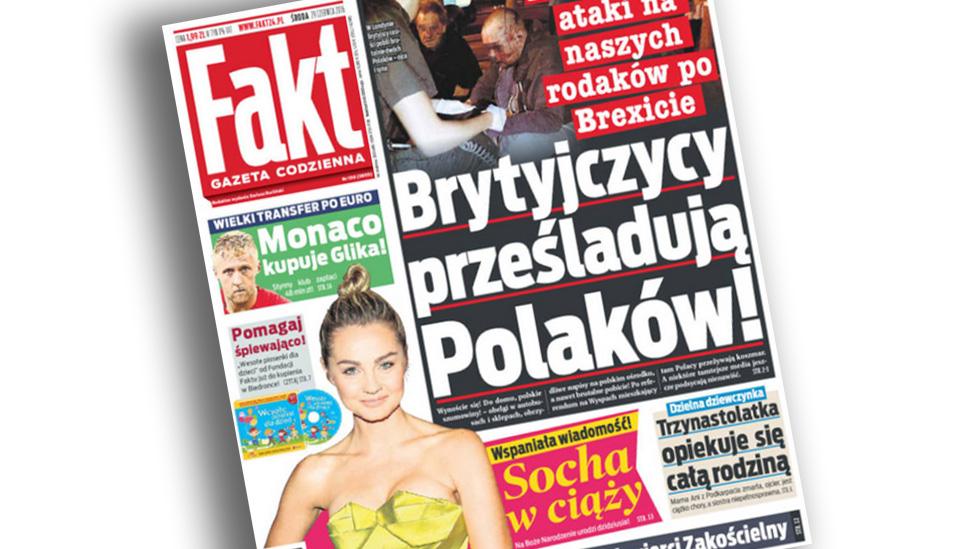
Poland's tabloid Fakt accuses the British of "persecuting Poles"
For Ouest-France, external's Laurant Marchant, free movement is at the "heart of the debate" and the real goal of the Leave campaign - to "halt the free movement of people, but retain the free movement of capital".
'Independence fever'
Papers across Europe are monitoring calls for referendums in other countries and the impact of Brexit on the political right.
A poll in Le Figaro, external shows only 45% of French respondents are keen to remain in the EU, with a third ready to leave.
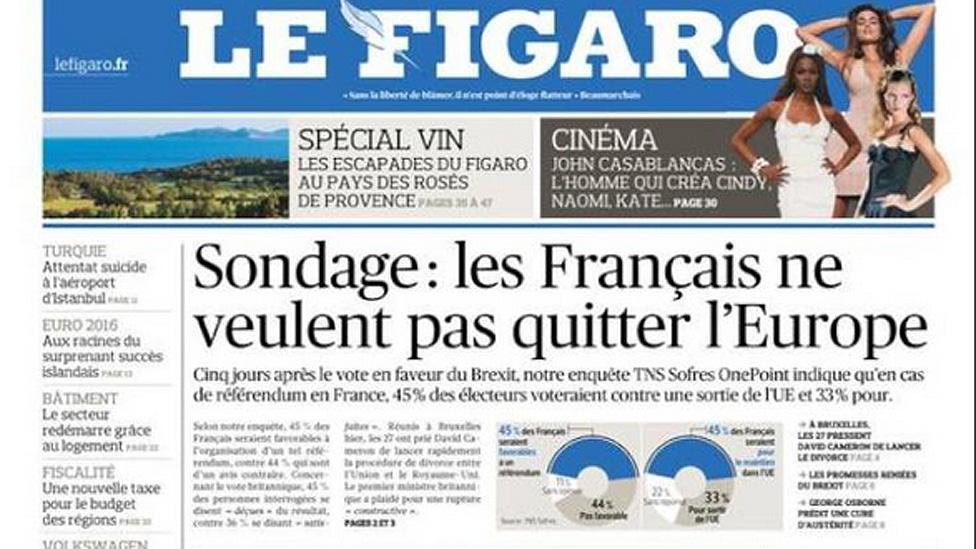
The paper's editorial says Brexit has emboldened the main French opposition Republicans and predicts that, if they win next year's presidential election, they will press for Europe to "rebuild itself on a new basis of openness, unless it wants to die a natural death".
Liberation, external focuses on the possible "last days of the United Kingdom", reporting the return of "independence fever" in Scotland and "Northern Ireland making eyes at the Irish Republic".
The former leader of the Scottish National Party, Alex Salmond, tells the paper that Scottish independence is now "inevitable".
'Romanians for Remainians'
Meanwhile, Gandul, external newspaper has launched a tongue-in-cheek 'Romanians Adopt Remainians' campaign to entice British fugitives from Brexit and the bad weather.
It is trying to arrange online matches between willing Romanians and disillusioned Remainers.
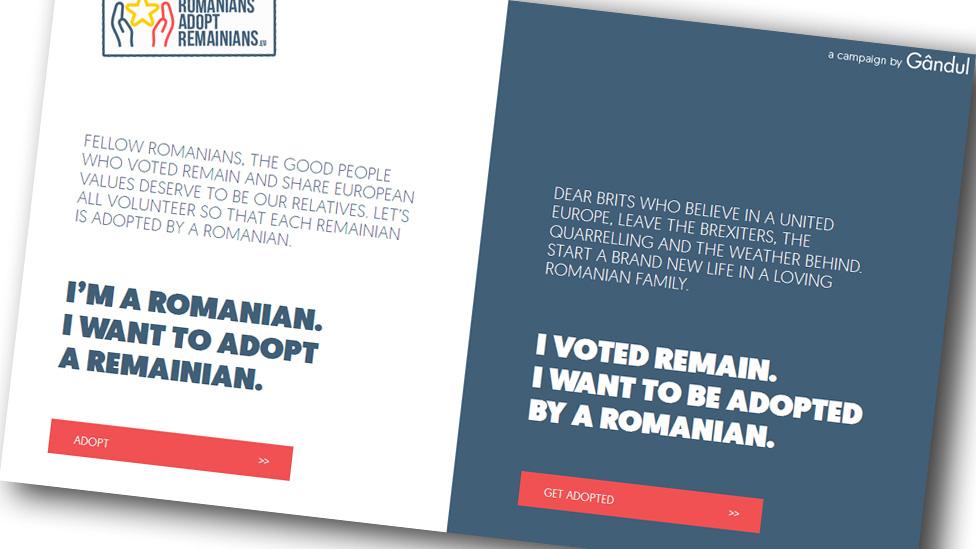
BBC Monitoring reports and analyses news from TV, radio, web and print media around the world. You can follow BBC Monitoring on Twitter, external and Facebook, external.
- Published19 June 2016
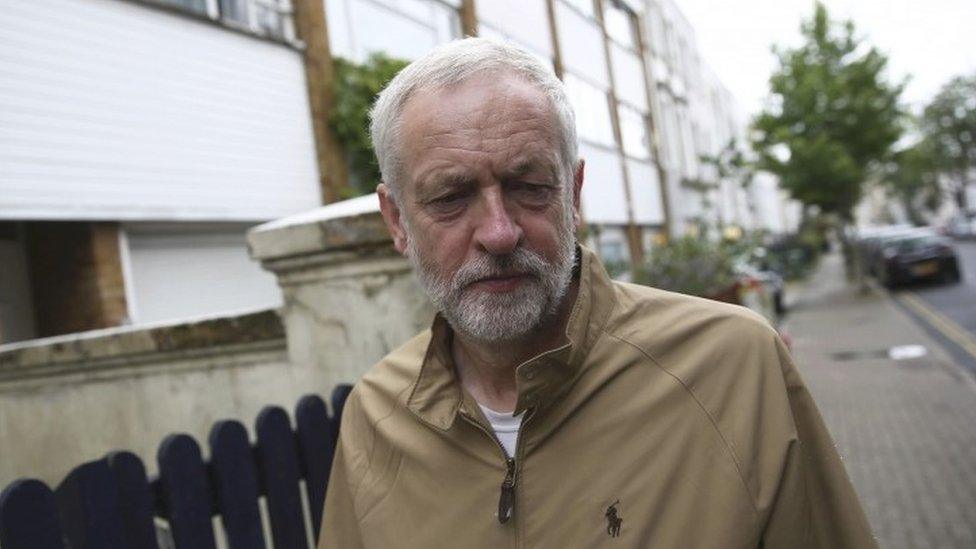
- Published28 June 2016

- Published25 June 2016
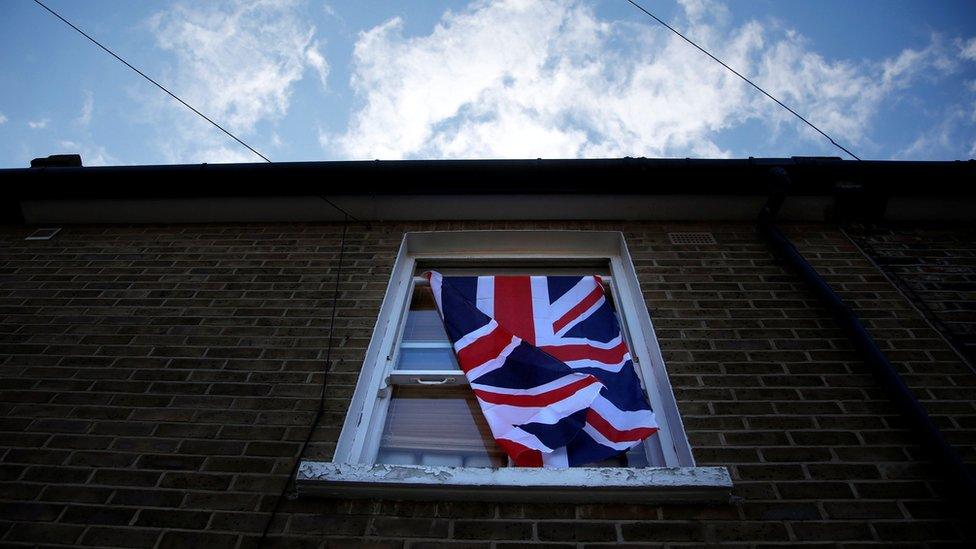
- Published27 June 2016
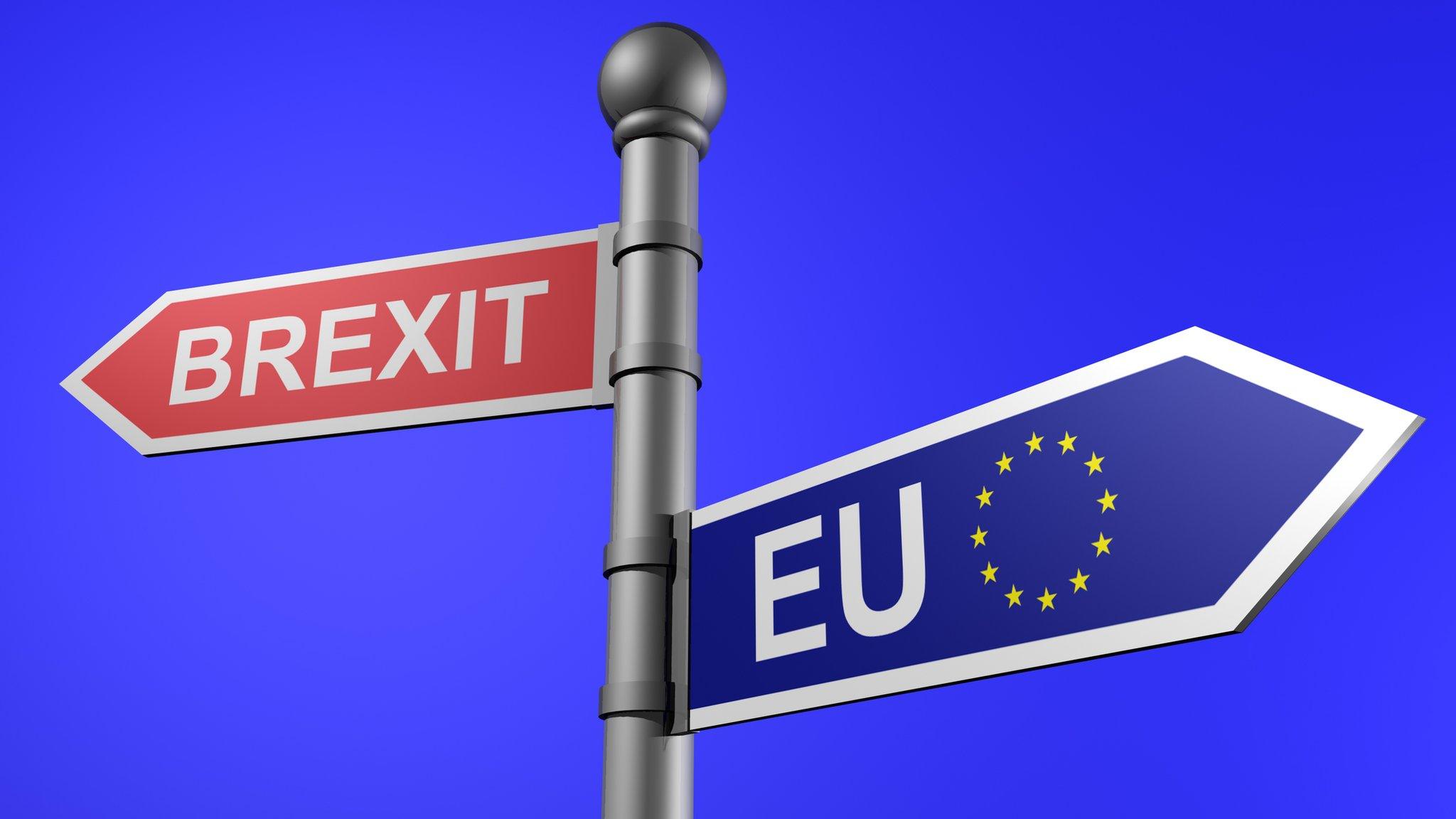
- Published24 June 2016
